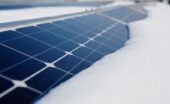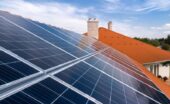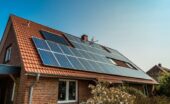What To Know Before Switching to Solar Power for Your Home
Written by SayBuild-admin // October 4, 2023 // Solar Energy // Comments Off on What To Know Before Switching to Solar Power for Your Home

Switching to solar power is an eco-friendly, energy-saving decision that provides numerous benefits for your home. However, before taking the plunge, it’s crucial to gather essential information about solar energy and how it works. Before switching to solar power for your home, there are some key things you should know that we’ll explain below.
Learning the Basics of Solar Energy and How Photovoltaic Systems Work
Many of us understand generally how solar power works, but could you explain how it transfers solar energy into power? It’s wise to learn the basics of solar energy and how photovoltaic (PV) systems work before making a significant investment in the technology.
The primary components of solar panels are silicon solar cells, which are capable of turning sun rays into direct current (DC) electricity. From there, the inverters convert this DC electricity into alternating current (AC), which powers your home appliances. Solar power systems often include storage batteries to store excess energy, allowing you to use solar-generated electricity even when the sun is not shining.
Your Home’s Solar Potential
The viability of solar power for your home depends on several factors.
Sunlight Exposure: Solar panels require adequate exposure to sunlight to generate electricity. Consider your home’s location, surrounding buildings, and natural elements that may obstruct sunlight.
Roof Structure: Your roof needs the right structure, size, orientation, and strength to accommodate solar panels. Consult a professional to assess if your roof can handle solar panel installation.
Local Building Regulations: Check your local building codes and permits for solar panel installation requirements and restrictions in your area.
Calculate Your Energy Consumption and Savings
Before switching to solar power for your home, you should calculate your energy consumption, potential solar generation, and potential savings. Determine the total energy usage in your home, your average electricity bill, and the percentage of your energy consumption that you want to cover with solar panels. You may utilize online solar power calculators to estimate the size and cost of your solar power system and potential savings on your electricity bills.
Solar Incentives and Financing Options
Solar power systems can be costly initially, but federal and local incentives can ease the financial burden. Research tax credits, rebates, and grants available in your area to reduce the solar installation cost. Additionally, consider financing options such as solar loans, power purchase agreements (PPAs), and solar leases to help you transition to solar energy.
Choose the Right Solar Power Equipment and Installer
Selecting the right solar power equipment and a professional installer is vital for an efficient and durable system. Research various brands, types of solar panels, inverters, and batteries to find a suitable match for your home. Hire a certified and experienced solar installer to ensure seamless installation.
Conclusion
Investing in solar power for your home is an environmentally friendly decision that provides numerous long-term financial benefits. By understanding the basics of solar energy, assessing your home’s solar potential, calculating energy consumption and incentives, and selecting the right installer, you can make a well-informed decision. Embrace a sustainable lifestyle and save on electricity bills by transitioning to solar power.








 If you want to contribute tutorials, news or other money-related stuff:
If you want to contribute tutorials, news or other money-related stuff:  Share our home building library with your facebook friends:
Share our home building library with your facebook friends:  Do you have any ideas or suggestions you would like to make?
Do you have any ideas or suggestions you would like to make?  If you like what we do, please subscribe to our
If you like what we do, please subscribe to our  All content Copyright © 2012 SayBuild. Part of nBuy Home Management Network.
All content Copyright © 2012 SayBuild. Part of nBuy Home Management Network.